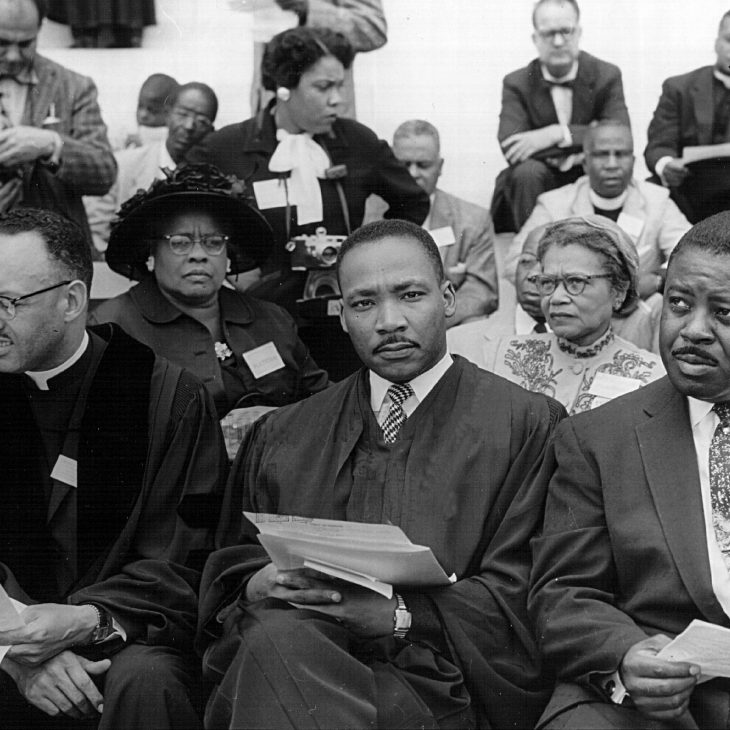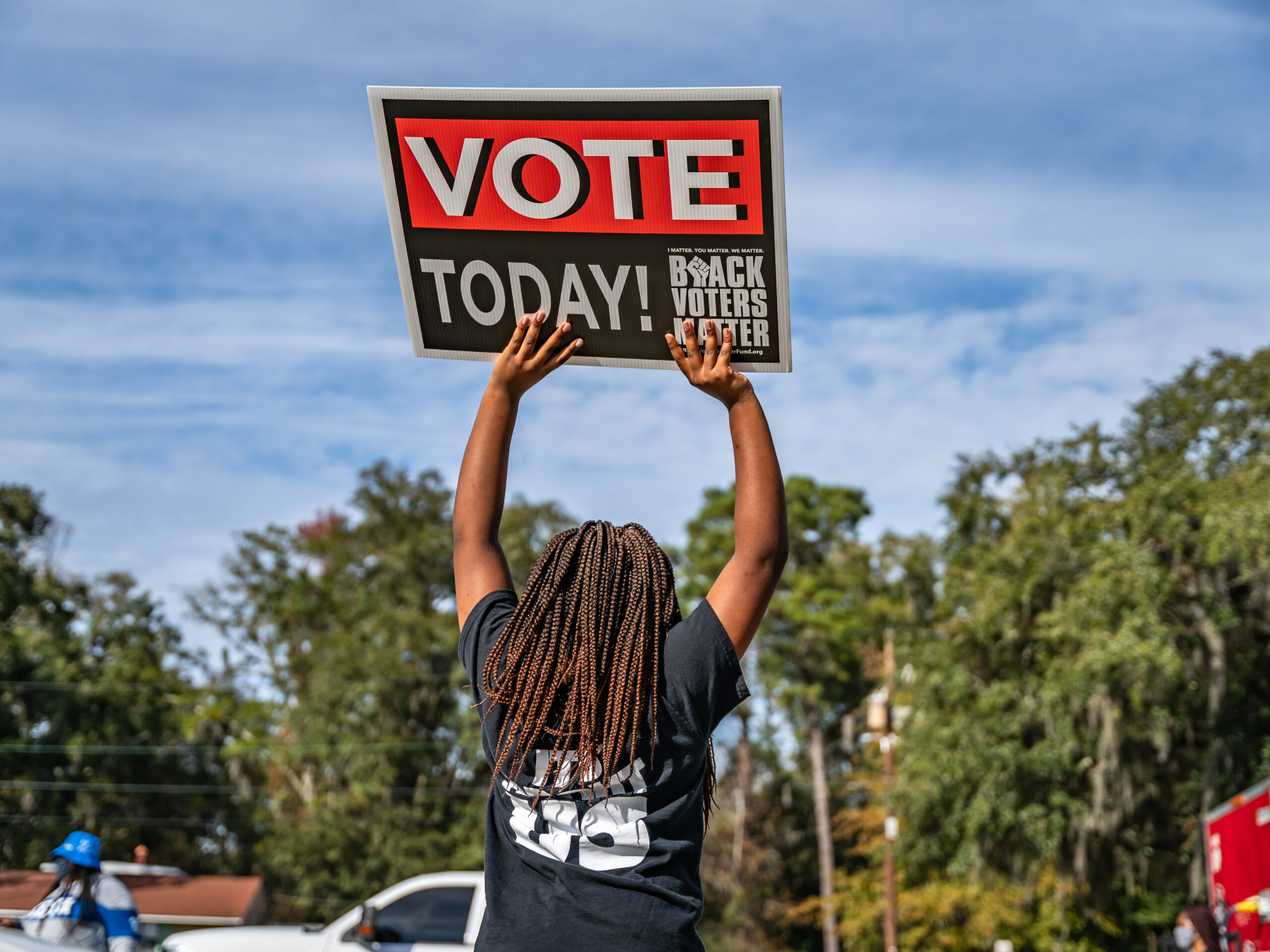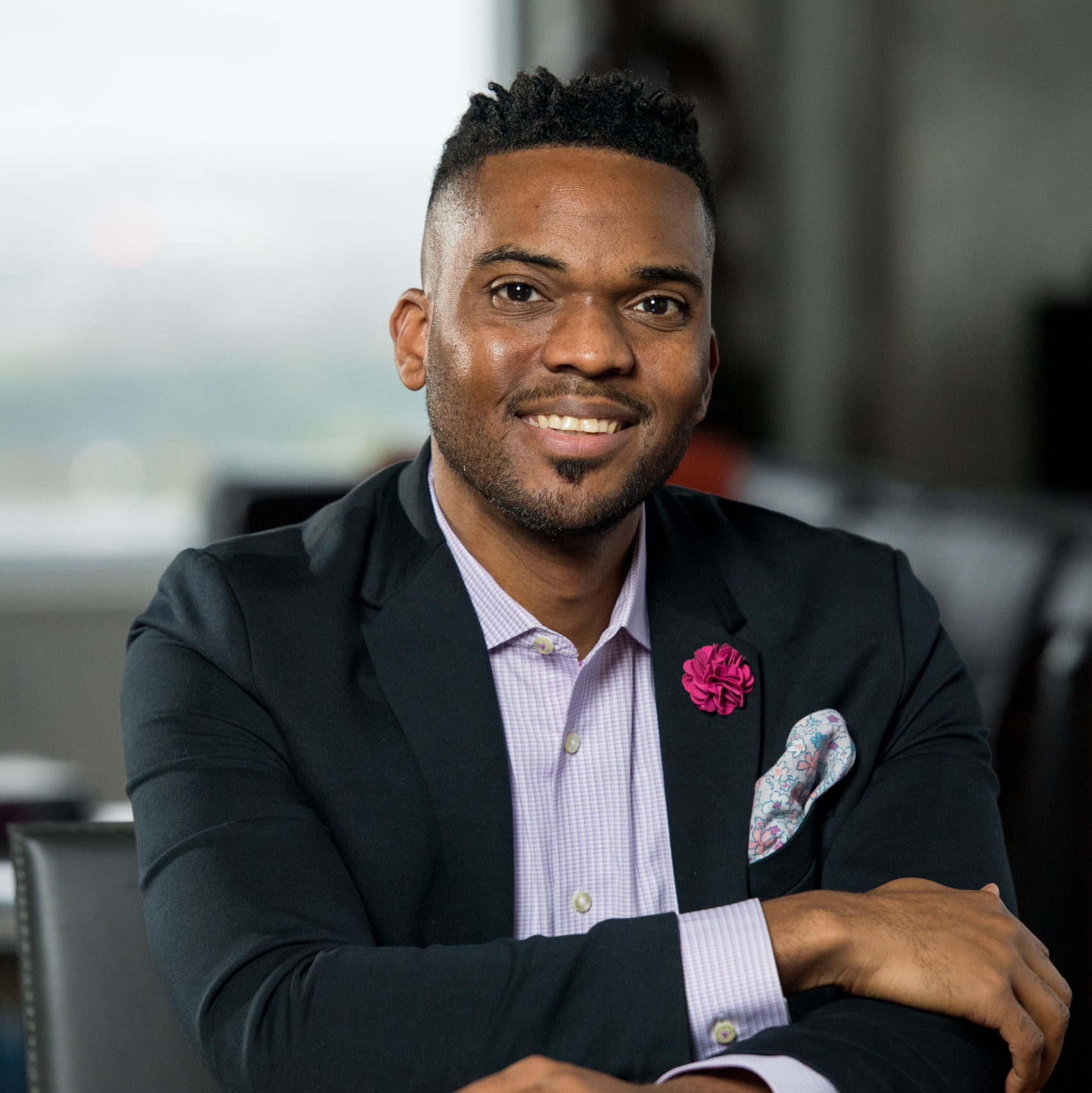On Election Day, Let Us Pray with Our Legs
October 31, 2022

“There must be a change. There will be a change. For to deny a person the right to exercise his political freedom at the polls is no less a dastardly act as to deny a Christian the right to petition God in prayer.” Rev. Dr. Martin Luther King Jr. wrote these words on June 19, 1965, in an editorial published in the Black newspaper, The New York Amsterdam, just weeks before President L.B. Johnson signed the Voting Rights Act into law prohibiting racial discrimination at the polls.
For King, it was the culmination of almost a decade of exhorting Congress to “give us the ballot” when he delivered a speech before 25,000 people on the steps of the Lincoln Memorial during the Prayer Pilgrimage for Freedom in 1957. In a cadence that only a multigenerational Southern Baptist preacher could deliver, King continued the refrain, “give us the ballot,” declaring that Black Americans would use their power at the polls to elect judges and governors in the South who upheld civil rights.
“The denial of this sacred right is a tragic betrayal of the highest mandates of our democratic tradition,” King said on that day.
Now 65 years after the Prayer Pilgrimage for Freedom and 57 years after the Voting Rights Act was signed into law, the denial of the sacred right to vote has evolved from prohibitive polling taxes and literacy tests to redistricting and civilian challenges of voter eligibility by fellow citizens such that newly introduced voter rights advancement legislation has been necessary to preserve the political power that King and others fought so hard to secure. Personally, as a Black American who has enjoyed the freedom to cast a vote in every election of my adulthood, the legacy of King, John Lewis, Bayard Rustin, Ella Baker, A. Phillip Randolph, Adam Clayton Powell, and countless others who gave us the ballot is enough for me to participate in the political process at every opportunity.

However, if that wasn’t enough, as a Christian, my faith calls me into the public square as a follower of Jesus Christ whose life and death were as much political as it was theological. At the intersection of the life and death, politics and faith of Jesus was justice. For me, Jesus IS Justice, and nothing feels more just and fair than the ability for everyone to have their voice heard equally in the public square. I believe this is why the fight for voter equality and the broader civil rights movement was largely led by people of faith, and particularly Christian witnesses who understood that they were not just protesting for civil rights, or human rights even, but for a divine right as sacred as the act of prayer.
We see the relationship between justice, protest, and prayer in the parable of the widow and the unjust judge in the biblical writings of Luke the Evangelist. Jesus prefaces the parable by telling the disciples to pray always and not to lose heart, then shares a story of a disrespected, underrepresented widow who pleads for justice against her opponent to a judge who “neither fears God nor respects people.” The widow is so relentless that she ends up receiving the justice she demands from the judge. In Jesus’ depiction of the widow, He offers us a God-endorsed invitation to engage in the relentless pursuit of justice, knowing that “power concedes nothing without a demand,” as abolitionist Frederick Douglass famously said.
Share
Related Articles
American Civic Life
American Civic Life
We Commemorate, We Commit: Out of Catastrophe, a Conversation on Connection and Repair
American Civic Life

Upcoming Webinar
Our Values, Our Democracy
Join Interfaith America for this dynamic panel conversation on November 16!
RegisterAs a young, enslaved man, Frederick Douglass briefly embraced Christianity, but when he escaped at the age of 20 he reflected on both his faith and his freedom saying, “I prayed for freedom for 20 years, but received no answer until I prayed with my legs.”
Later during the Civil Rights movement, a Rabbi named Abraham Joshua Heschel would echo Douglass’ sentiments. Rabbi Heschel was a Polish-born American rabbi and one of the leading Jewish theologians and philosophers of the 20th century. He was also a fierce advocate for justice and one of King’s closest interfaith allies, marching alongside him to Selma, Alabama, for voting equality. According to Heschel’s daughter, Dr. Susanna Heschel, “When he came home from Selma in 1965, my father wrote, ‘For many of us the march from Selma to Montgomery was about protest and prayer. Legs are not lips and walking is not kneeling. And yet our legs uttered songs. Even without words, our march was worship. I felt my legs were praying.’”
All things considered, voting in the 21st century feels like praying with my legs. Instead of petitioning God with our heads bowed, knees bent, and our eyes closed, voting is our God-endorsed invitation to stand tall with our heads held high, and our eyes wide open to engage in the relentless pursuit of justice, because justice is central to living prayerfully before God. Indeed, “there must be a change; there will be a change,” but not without the activity of our limbs and the sensibility of our hearts and minds carrying us to the polls.
Together, let us pray with our legs on November 8, Election Tuesday!

Dr. Ulysses W. Burley III
Dr. Ulysses W. Burley III is the founder of UBtheCURE, LLC, a consulting company on the intersection of faith, health, and human rights. Although his primary training is in Immunology and cancer epidemiology, most of Dr. Burley’s work has been around HIV and AIDS awareness, advocacy, and capacity building and includes LGBTQIA+, gender and racial justice, and peace and justice in the Holy Land. Currently, he is the Project Director for the HIV Vaccine Trials Network (HVTN) Faith Initiative to connect with diverse faith communities to share evidence-based information regarding HIV and biomedical interventions being developed for its prevention.



